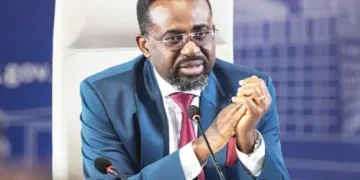Ghana Anticipates $370 Million IMF Disbursement to Support Currency Stability
Ghana’s currency is expected to maintain its relative stability in the coming weeks, buoyed by anticipated inflows from the International Monetary Fund and the World Bank, according to the country’s central bank.
The IMF is set to disburse a $370mn tranche to Ghana later this month, subject to approval by its Executive Board when it meets on June 3. The payment, which marks the fifth instalment under the country’s $3bn Extended Credit Facility (ECF), follows a successful fourth review of Ghana’s economic programme in April. Once approved, it will bring total disbursements under the arrangement to $2.24bn.
Bank of Ghana Governor, Dr Johnson Asiama, said the inflows would help shore up the country’s foreign exchange reserves and provide further support for the cedi, which has seen renewed strength in recent weeks. “We are expecting the $370mn, and not only that—the World Bank also stands to make some disbursement. These inflows will build our reserves further, but that will likely materialise in June,” he said.
Ghana’s economy, which has grappled with high inflation, rising debt and a sharp depreciation of the cedi in recent years, has shown signs of stabilisation under the IMF-backed programme. The ECF arrangement has been instrumental in restoring investor confidence, facilitating debt restructuring talks, and driving fiscal and structural reforms.
The expected disbursements come at a time when foreign exchange pressures are easing, supported by the cedi’s appreciation against the dollar—from GH¢13.99 to GH¢12.15 in the latter half of May, a gain of over 13%. Analysts say the IMF and World Bank inflows could offer short-term relief, particularly as the mid-year economic cycle gets underway and import demand rises.
Market participants remain cautiously optimistic. While the IMF cash injection will provide a temporary buffer, long-term exchange rate stability, they argue, will depend on sustained fiscal discipline, external financing, and progress on debt restructuring.
The next steps in Ghana’s engagement with international creditors, along with the outcome of the IMF Board’s meeting, will be closely watched by investors and rating agencies seeking signals on the country’s medium-term macroeconomic trajectory.








